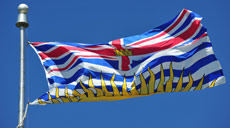Canadians trust health professionals like their family doctor first and foremost when it comes to the COVID-19 crisis, a new poll suggests. The poll, conducted by Leger and the Association for Canadian Studies, asked respondents to rate their level of trust in various institutions, including public health officials and politicians.
Health professionals like doctors and nurses had the highest level of trust in Canada, with 92 per cent support. Public health officials, generally, followed close behind at 81 per cent, while 72 per cent of respondents said they trusted chief public health officer Dr. Theresa Tam.
That's no surprise, said Christian Bourque, executive vice-president of Leger. He said most people trust the people they're closest to.
"I was expecting more of a gap between those who you interact with versus those that you see," he said.
The World Health Organization, which has faced criticism, including from the Conservatives, for how it responded to the novel coronavirus in China, was trusted by 68 per cent of Canadians. Fifty-four per cent said they trusted Prime Minister Justin Trudeau.
At the lower end of the spectrum, only 50 per cent of Canadians said they trust the media, though that has been the case for a long time and has not changed as a result of the pandemic, said Bourque.
The trust Canadians show in their institutions ranked much higher than those of respondents from the United States in most categories, although President Donald Trump had the support of 12 per cent of Canadians compared to 38 per cent of respondents in the U.S.
The poll, conducted April 17-19, surveyed 1,504 adult Canadians and 1,001 adult Americans randomly recruited from Leger's online panel. Internet-based surveys cannot be assigned a margin of error because they are not considered random samples.
Bourque said that trust in institutions may be why Canadians have been so faithful about abiding by physical distancing measures over the last several weeks.
The number of people who feel the worst the pandemic is yet to come is shrinking, from 56 per cent last week to 39 per cent this week.
Fear of contracting the virus appears to have peaked in early April, when 76 per cent said they were afraid of catching COVID-19. That number has now dropped to 69 per cent.
Still, the vast majority of Canadians said they are continuing to abide by all public health advice.
"We've sort of turned the corner," said Bourque, "yet we still remain extremely disciplined in social distancing."
Seventy-three per cent of respondents in Canada said they follow all physical distancing measures and public health advice, compared to only 34 per cent in the U.S.
Nearly 80 per cent of Canadians working from home said the experience was positive, even though 40 per cent described it as hard.
Concern now seems to revolve around long-term care and seniors' residences, Bourque said.
Tam confirmed that outbreaks in long-term care homes are driving the rising number of deaths in Canada, even as the number of confirmed cases has started to slow
"People are saying that’s the real crisis now," Bourque said.
While the poll suggests the level of concern was high for people with senior relatives living on their own (72 per cent), or with family (77 per cent), it was much greater for people whose relatives are living communally with other seniors (85 per cent).
Even in the midst of that concern, Canadians' satisfaction with the response from their federal, provincial and municipal governments has remained high for the last several weeks.



